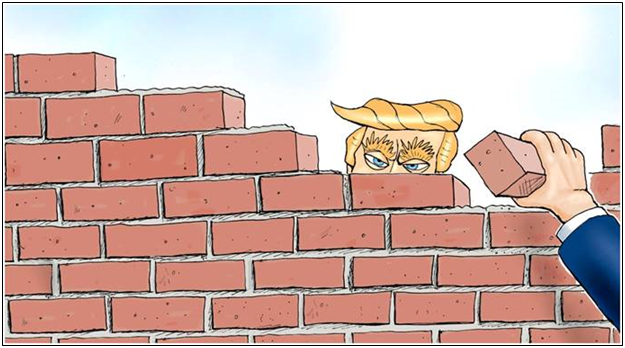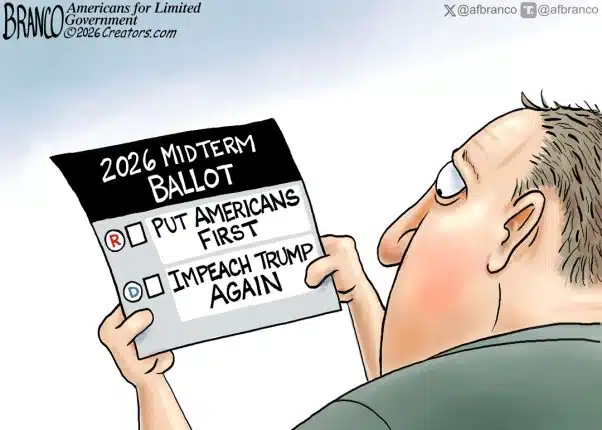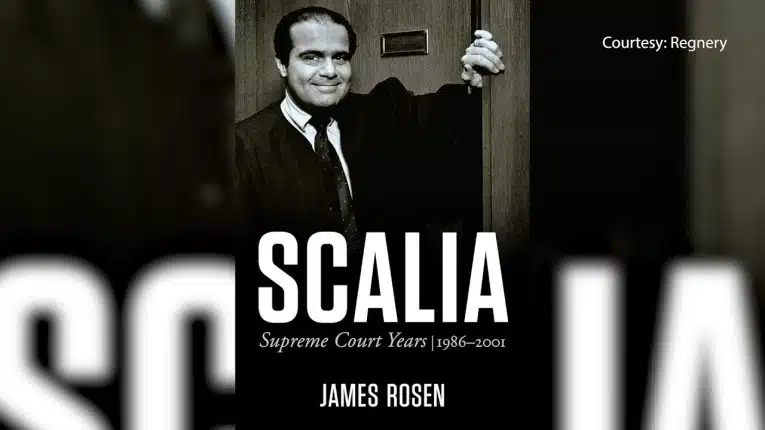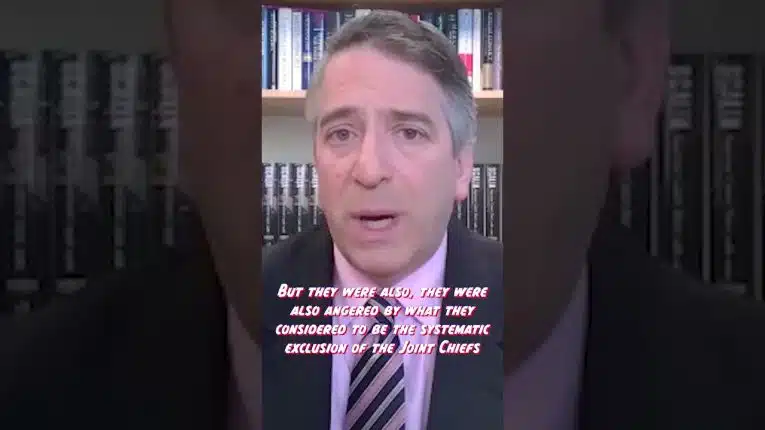Congress has passed the omnibus spending bill and President Donald Trump is signing it.
And, he is going forward with declaring a national emergency and invoking pre-existing Congressional authorization to redirect military construction funds to build the southern border wall. He has no other choice.
The omnibus legislation, even though it provides $1.3 billion for steel barriers, still does not provide enough money finish the wall, and the money it does provide it only allows building in the Rio Grande Valley sector. And even then says you cannot build in wildlife refuges there even those are public lands, creating obvious corridors for human and drug traffickers.
It creates more incentives to traffic unaccompanied children by blocking deportation of sponsors even if they’re here illegally.
It delays construction of the wall in the Texas cities of Roma, Rio Grande City, Escobares, La Grulla and Salineno pending local consultations and the period does not end until the fiscal year ends.
In short, it doesn’t get the job done.
Before the government shutdown, House Speaker Nancy Pelosi (D-Calif.) was unwilling to provide any additional money for steel barriers. Now suddenly she has found $1.3 billion for 30-foot-high steel bollard fencing the President has been touting as his preferred wall.
A design of our Steel Slat Barrier which is totally effective while at the same time beautiful! pic.twitter.com/sGltXh0cu9
— Donald J. Trump (@realDonaldTrump) December 21, 2018
That is in addition to the $1.6 billion Democrats in Congress approved last year alongside the Republican-led Congress. But it did not do much better last year with the $1.6 billion, as much of it was for repairing existing fencing. For example, a section replacement with this design has already been completed in Calexico, Calif.
All told, Democrats have overwhelming approved nearly $3 billion for the wall the past two years — whether they care to admit that their constituents of that fact.
That is progress and if nothing else proves the President was wise to withhold his signature. In part, the shutdown worked as Democrats coughed up more funds for the wall. But the progress has been slow, and in the meantime human trafficking, drugs and gangs continue to pour into the country.
As a result of this continued emergency, the President has no other choice but to utilize existing provisions of federal law that already authorize the construction of barriers on the border.
One section allows military construction funds to be redirected. 33 U.S. Code Section 2293(a) provides that “In the event of a declaration of war or a declaration by the President of a national emergency in accordance with the National Emergencies Act [50 U.S.C. 1601 et seq.] that requires or may require use of the Armed Forces, the Secretary, without regard to any other provision of law, may (1) terminate or defer the construction, operation, maintenance, or repair of any Department of the Army civil works project that he deems not essential to the national defense, and (2) apply the resources of the Department of the Army’s civil works program, including funds, personnel, and equipment, to construct or assist in the construction, operation, maintenance, and repair of authorized civil works, military construction, and civil defense projects that are essential to the national defense.”
Whereas, 10 U.S. Code § 2808(a) allows uncommitted monies to spent, stating “In the event of a declaration of war or the declaration by the President of a national emergency in accordance with the National Emergencies Act (50 U.S.C. 1601 et seq.) that requires use of the armed forces, the Secretary of Defense, without regard to any other provision of law, may undertake military construction projects, and may authorize the Secretaries of the military departments to undertake military construction projects, not otherwise authorized by law that are necessary to support such use of the armed forces. Such projects may be undertaken only within the total amount of funds that have been appropriated for military construction, including funds appropriated for family housing, that have not been obligated.”
And, 10 U.S. Code § 284(b)(7) explicitly authorizes “[c]onstruction of roads and fences and installation of lighting to block drug smuggling corridors across international boundaries of the United States.”
The President should use them all.
All of these are explicit grants of authority by Congress, which passed both chambers and were signed into law years ago, and do not have the kinds of restrictions Congress is contemplating today. They do not set precedent beyond what the statutes say is authorized.
In other words, if a Democratic president took office and wanted to utilize these same statutes to divert military construction monies to something else deemed essential to national defense, it could be done — and it could have already been done. These statutes are decades old. President Trump did not invent these statutes, and it’s up to the current President to determine how they are executed.
Now, Congress may yet attempt to disapprove of the President’s emergency declaration. If so, he should veto it, and dare Congress to override the veto.
There’s also likely to be court challenges. But the provisions of law are clear. The President can redirect military construction funds to a project if he deems it essential to national defense. That’s a political question with which he has discretion.
This is not an end-run around the Constitution. These types of discretionary grants to departments and agencies on how to spend their budgets are extremely common, where Congress creates broad categories of items that monies can be spent on. It is perfectly legal and should be difficult to overturn in the courts. Whether this was a good use of legal authority is something for the American people to decide in 2020 but the law is crystal clear.
It may very well be the case that the current omnibus spending bill is about as good as you can expect from the current Congress right now on border security. That’s fine. The President can do better.
Robert Romano is the Vice President of Public Policy at Americans for Limited Government.








